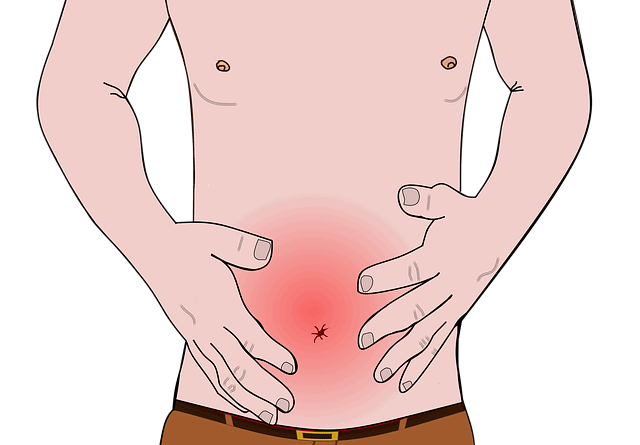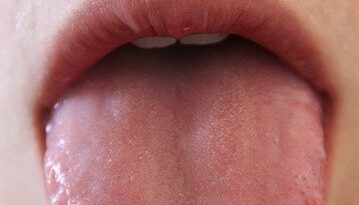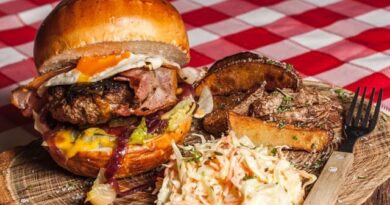Home Remedies For Gas And Indigestion
Many of the foods we eat produce excess gases that end in discomfort, swelling and sometimes even pain. These gases are produced by many causes and are known as flatulence. It is true that some foods generate more gases than others, although it is also very much up to our body and how we process the food we have. How do I get rid of flatulence and indigestion? In this article, we will see what are the causes and some home remedies for gas and indigestion.
See also :
- 7 Healthy Tips for Teenagers
- What is Granola? Is Granola Healthy?
- 7 Home Remedies To Relieve Constipation Naturally
- 5 Easy Ways to Control Overeating Desire
- Spirulina – a natural way to strengthen immunity
- 8 Incredible Benefits of Mango Ginger
Cause for flatulence (gas) and indigestion
Flatulence occurs due to excessive air in the digestive tract. This excessive air will mostly cause a feeling of discomfort if left unchecked. This excessive air itself can come from outside the body which is swallowed when we breathe, eat in a hurry, etc. Or also comes from within the body, namely from the process of digestion of food.
Some of the main triggers for excess gases are often lack of exercise or excessive sedentary lifestyles. Although there are other causes that are more important when it comes to generating gases, and that are basically derived from the way we feed ourselves.
Lactose is one of the causes of excess gases, as many people have intolerance to this substance due to a low level of lactase, the enzyme that digests lactose. If this happens our digestion becomes heavy and we generate a lot of gases.
Carbohydrate and fiber intake can produce gases, as many carbohydrates are not easily assimilated by the body, so digestion becomes heavy, food is fermented in the stomach and gases are generated. Foods such as beans, onion, wheat flour, bananas etc.. are famous for generating gases. The same goes for those that are rich in fiber, and if you want to start a diet rich in these foods, it is advisable to go slow, so that the body gets used to it.
Stress is another cause of flatulence because excess nerves and tension from this mood, make our digestions slower and heavier, making food stay longer in our digestive system and fermenting producing gases that we usually retain also because of excess nervousness. This situation can be solved with relaxation processes.
How to avoid flatulence and indigestion?
If you feel flatulence and indigestion after eating, the following simple ways can be applied without the need for digestive drugs.
Home remedies for gas and indigestion –
Lemon and ginger juice
Take two tablespoons of lemon juice and ginger and honey. Mix them in a cup of warm water. Drink it after each meal “excessively” to aid digestion.
Eat oranges
Eating an orange is a simple way to solve post-meal indigestion. Experts say that oranges not only help support digestion but provides adequate nutrition for you. Consider it an essential and useful dessert dish.
Eat grapes
Eating juicy grapes can eliminate indigestion and provide adequate nutrients. Therefore, you can sometimes change the dessert fruit from orange to grape, it will also bring the desired benefits to the stomach.
Warm lemon juice
If you know in advance that you often experience symptoms of indigestion, you can prepare this drink before eating. Mixing a tablespoon of lemon juice into a glass of warm water and drinking before a meal will prevent bloating because lemon supports more acidity to the stomach. In addition, lemon also helps fight bacteria in food.
Garlic and soybean oil
Whenever you have abdominal pain, mix a mixture of garlic oil and soybean oil to rub on the abdomen. Rub thoroughly so that the oil absorbs through the skin. This will give you immediate relief.
Eat yogurt
Although milk is easy to cause flatulence, yogurt is good for the intestinal tract because it contains lactobacillus bacteria, which help kill harmful bacteria that cause flatulence.
Use Ice packs
Doctors recommend applying ice packs to your abdomen at least half an hour after a meal to relieve stomach pain. You can also relax by taking a cold bath.
Drink buttermilk and tea
Drinking buttermilk after each meal is an effective way to prevent indigestion as it helps the body digest food fast.
Mint tea and raspberry tea can also help solve the problem of the raspberry.
Eat raw ginger or drink fresh ginger tea
Ginger is used in the treatment of digestive problems, as it relieves infections and stomach cramps, it is an alternative medicine that has existed for many ages.
Ginger naturally stimulates the digestive enzymes of the body and protects the lining of the stomach, put a spoonful of fresh ginger into a cup and soak it in boiling water, then you can add honey or lemon.
Papaya enhances digestive system health
This fruit is highly appreciated by experts in enhancing the health of the digestive system. The substances in papaya help stimulate the taste fluids to digest food.
Eat smaller meals
This is a simple but very effective tip, as it’s best to avoid overfilling your stomach at meal times, and instead of dividing meals into just 3, you can eat 5 or 6 small meals throughout the day. This regulates blood sugar and will make you feel better away.
Move your body
Movement and brisk walking can help the digestive system to work.
Health Tips – How to boost your Immunity
What foods to avoid?
It is recommended to avoid all sweet foods which include all kinds of cakes.
Avoid yeasts and some yeast-containing foods such as bread, beer etc..
Avoid alcohol, vinegar, pickles.
Fungi and blue cheese.
Greasy foods
Natural Beauty Tips – Beauty Tips
Avoid chewing gum
When you chew gum, you can swallow the air, so your stomach gets gassed, so if you like to eat gum regularly, it’s best to reduce the quantity.
Avoid soft drinks
Soft drinks contain gas, which can inflate your stomach, so it makes sense to reduce or stop consuming them, and instead you can drink ginger or mint tea to soothe your puffy belly.
Reduce fructose
Fructose is a type of sugar that occurs naturally in some foods, especially, onions, artichokes, dried fruits, canned tomatoes, ketchup, pears, apples, honey, wheat and fruit juice. Fructose-rich corn syrup is a form of fructose that is frequently added to processed foods and many soft drinks and fruit drinks.
Avoid Vegetables such as beans, broccoli, cabbage, cauliflower
Beans are an excellent source of protein, carbohydrates, fiber, vitamins and minerals, but most contain sugars called alpha-galactosidase, which belong to a group of hard carbohydrates that are considered the worst enemy of bloating.
These sugars found in beans form gases during the fermentation process that can disturb people with irritable bowel syndrome, causing flatulence, cramping and diarrhea.
Avoid foods that cause acidity
Such as chocolate, mint, alcohol, citrus fruits and juices, as well as spicy foods, fatty and fried foods and soft drinks.
When is it necessary to see a doctor?
As mentioned above, most cases of gas discharge and flatulence do not require a doctor’s review, and are treated in simple domestic ways, but there are some signs and symptoms, that if accompanied by flatulence and the exit of gases, should be visited by a doctor.
These symptoms include stools in the blood, significant weight loss, constant vomiting or prolonged abdominal pain, etc.
Read Also :
- Kanji Indian drink for skin and gut
- 12 Ways To Manage Depression Without Medication
- 7 Ways To Overcome Laziness To Exercise
- 7 Habits That Drain Your Energy
- 8 Foods That Increase the Risks of Heart Attacks
- 7 Healthy Tips for Teenagers
- What is Granola? Is Granola Healthy?
- Red clover and its medicinal properties
- 7 Home Remedies To Relieve Constipation Naturally
- 5 Easy Ways to Control Overeating Desire





